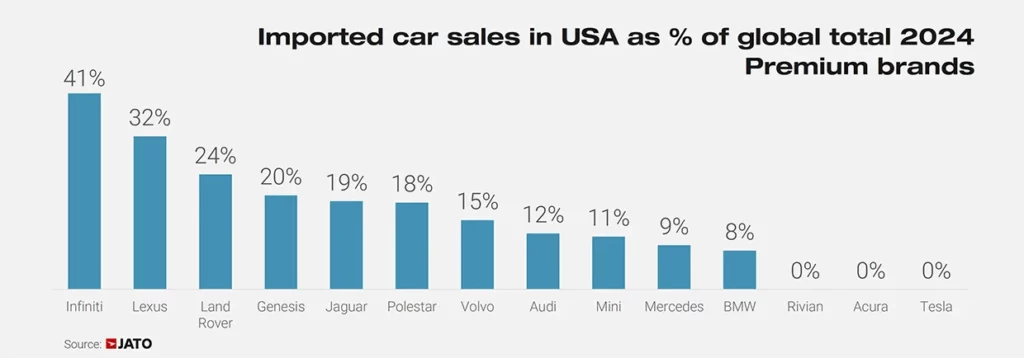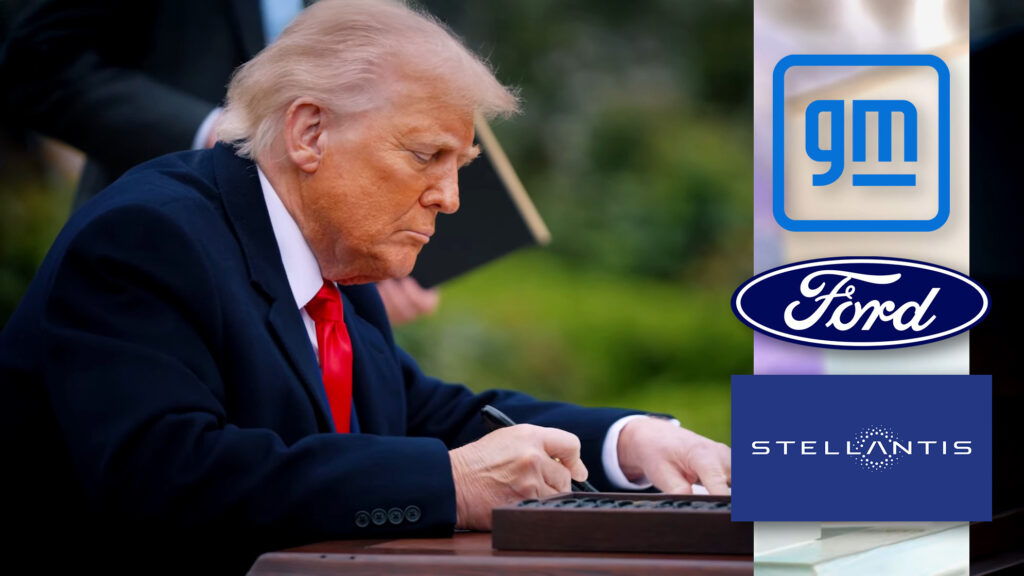- Detroit’s Big Three sold 1.85 million imported vehicles in the US last year alone.
- Tariffs could hurt US brands more than foreign automakers due to import dependencies.
- Automakers may shift production to the US to avoid rising costs and protect margins.
President Trump’s new tariffs on imported cars are meant to protect domestic automakers and safeguard US jobs. In the automotive world, though, things aren’t so simple, and the tariffs that went into effect on April 2 may do more harm to the very same companies that they’re supposed to benefit than their overseas rivals.
The simple reason is that American brands don’t make all their models Stateside. In fact, last year, GM, Ford, and Stellantis, aka Detroit’s Big Three, sold approximately 1.85 million imported light vehicles in the US, which represent 13% of their combined global sales.
More: GM Just Blinked After Trump’s Tariff War Escalated
By comparison, Japan’s three largest automakers, namely Toyota, Honda, and Nissan, collectively sold 1.53 million units in the States. The difference may not seem that great, but this number accounts for just 9% of their global sales. As for the Germans, imported cars from the VW Group, BMW Group, and Mercedes-Benz represented 7% of their total sales, according to a JATO Dynamics report.
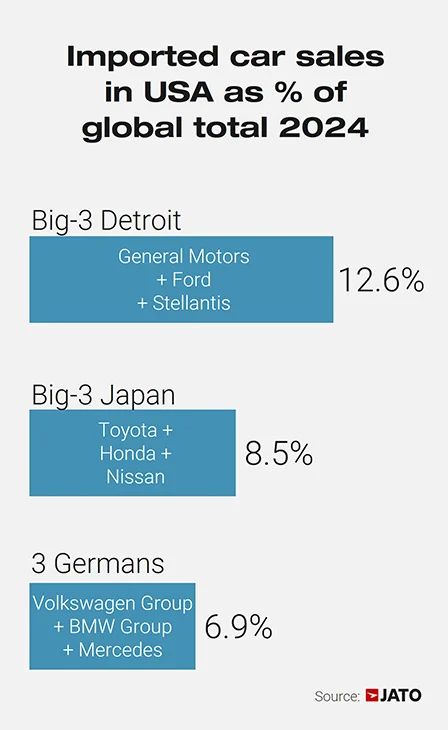
This means that domestic automakers actually depend more on importing vehicles from their plants in countries like Canada and Mexico than their main foreign rivals. Moreover, as the report points out, Detroit’s Big Three rely much more on their home market than European and Japanese brands, which have a bigger global outreach.
General Motors will feel the sting of Trump’s tariffs the most, as in 2024, it ranked right behind Hyundai-Kia and Toyota in total vehicle imports in the US. Imported models made up 18% of its global sales, which is the highest percentage among the world’s five largest automakers.
Making matters worse is the fact that North and South America and China are where it delivers most of its vehicles, while it’s practically absent from Europe and the rest of the world. With Chinese buyers increasingly ditching foreign brands in favor of domestic ones, this leaves the US as its main battleground – but the newly imposed tariffs threaten to severely impact its business.
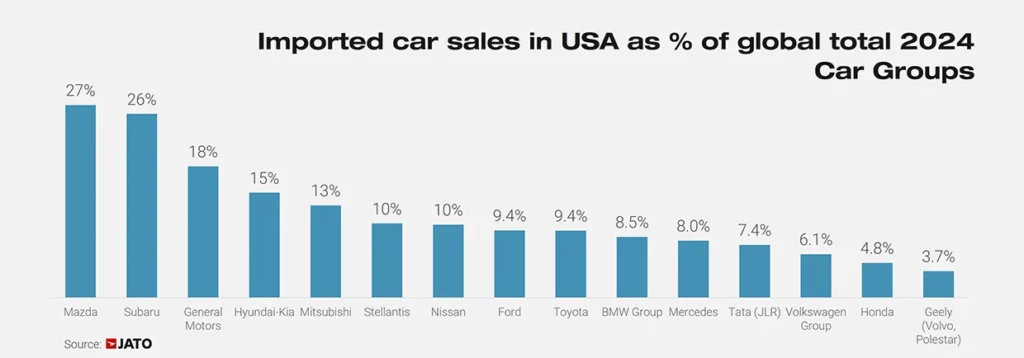
“The rollout of these tariffs is yet another problem for the industry to navigate. The US is the world’s second-largest vehicle market, and it will now be more difficult than ever for the vast majority of non-Chinese automakers around the world to trade”, Felipe Munoz, Global Analyst at JATO Dynamics, said.
More: Audi Stops All US Vehicle Exports Over Tariffs
It’s not that other brands won’t suffer, though. For instance, 343,000 out of the 1.28 million new cars Mazda sold in 2024 were imported into the US, while Subaru is much more exposed in the American market, which last year accounted for a staggering 71% of its total sales.
As Munoz pointed out, “The US is a vital market to 14 of the 18 non-Chinese global carmakers. For the likes of Volkswagen, the US contributes a relatively small amount of the brand’s total revenue, but it will seek to hold a presence to retain its position as a global brand.
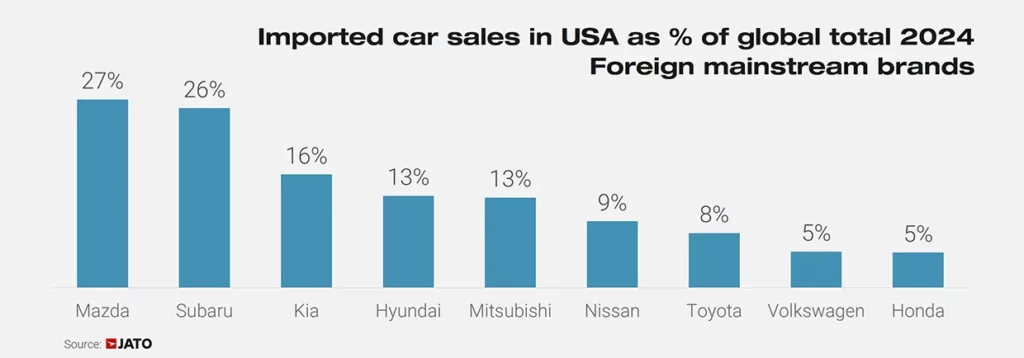
“Alongside Volkswagen, it is likely that Volvo, Hyundai-Kia, Mercedes, BMW, Stellantis, Toyota, Nissan, Subaru, and General Motors will need to increase their production footprint in the US in the near future. The US is a market that they can’t leave.”
All that said, maybe Trump does have a point after all. What he wants is for automakers to build the cars they sell to American buyers in the US – and it seems that, if those tariffs stay in place, most of them will be forced to comply or risk seeing their sales decline as their offerings will become too expensive compared to locally manufactured rivals.
Yes, there could be a method in this madness, even if it means that, until they get their production sorted out, even domestic brands will have to bleed, too.
